Salisbury poisonings: Theresa May remembers Novichok attack
- Published
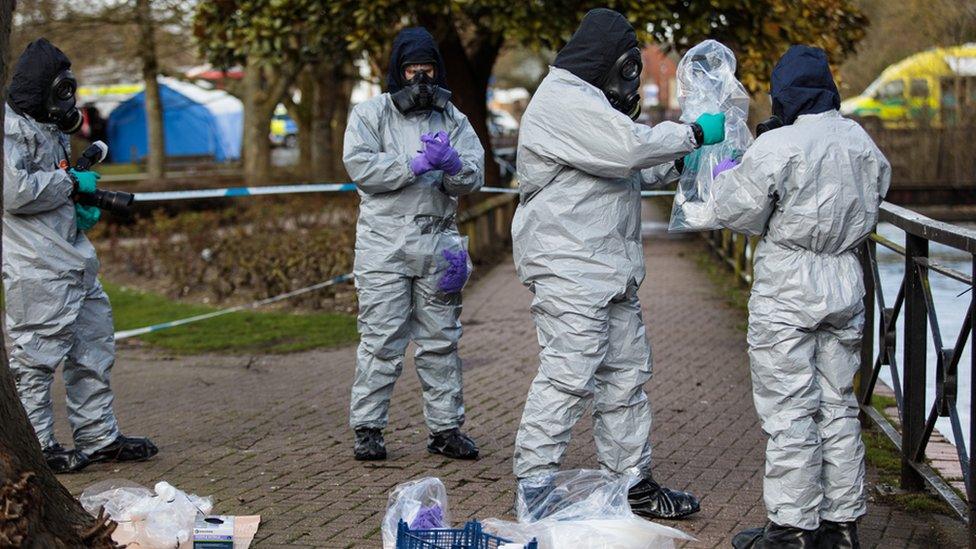
A large area of Salisbury city centre was put into lockdown following the chemical agent attack
"You start thinking - when will we know? What might have happened? Who might be responsible? What do we have to do?"
The Novichok attack in Salisbury was one of the most significant incidents of former Prime Minister Theresa May's tenure.
Former double agent for Russia and Britain, Sergei Skripal, and his daughter Yulia were targeted with a chemical nerve agent and rushed to Salisbury District Hospital in March 2018.
Three months later, mum-of-three Dawn Sturgess would lose her life, and her partner, Charlie Rowley, spent three weeks in hospital after coming into contact with a perfume bottle containing the nerve agent.
Police officer Nick Bailey was also hospitalised, after searching Mr Skripal's house.
It was an incident Mrs May said would test both herself and the nation.
Speaking to BBC Radio Wiltshire she said the UK would emerge "respected" by the international community.

Theresa May met with Wiltshire Police Chief Constable Kier Pritchard in Salisbury following the attack in 2018
"That very incident, the way we dealt with it - we have learnt some lessons which we have taken forward," she added.
Discussing Russian President Vladmir Putin, Mrs May said: "He's an opportunist. If he thinks there's a door ajar, he wants to push it open, he will do that."
In the Salisbury attack, Putin was attempting to push open the door, she said.
Mr Skripal, then aged 66, and his 33-year-old daughter, were found slumped on a bench outside the Maltings shopping centre in the city centre, and the area was put into lockdown as a result.
Mrs May recalled her private secretary coming into her office to tell her about what had happened.
"When Sergei Skripal's background became clear, the warning bells start ringing rather more loudly," she said.
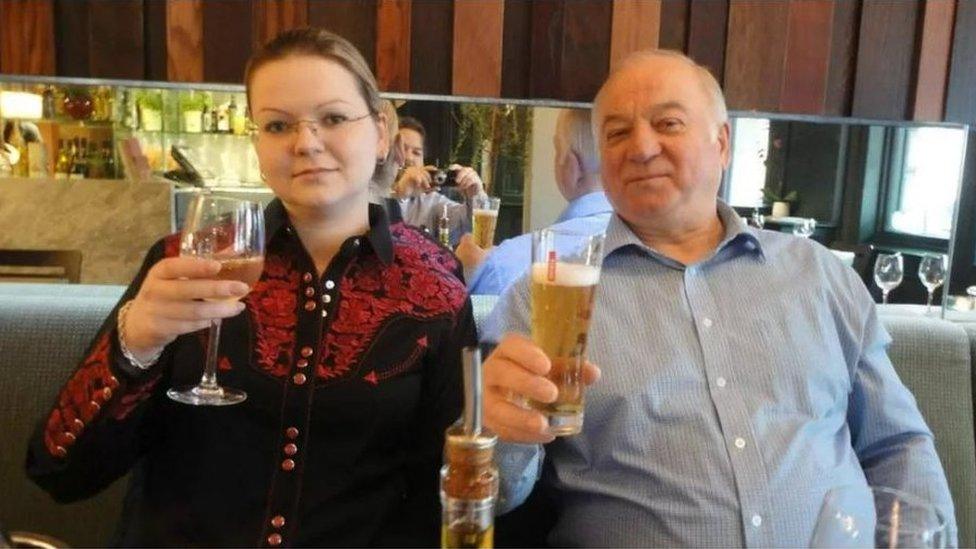
Sergei Skripal - who had been living in Salisbury for some time - and his daughter Yulia were rushed to Salisbury District Hospital
There were many questions. When should she tell parliament, for example. It was clear the situation was serious.
"Salisbury District Hospital and Porton Down were important in actually identifying that this wasn't just an illness.
"There was a very real cause behind this and it was the use of a chemical weapon," she said.
It was established the Skripals had come into contact with the Novichok nerve agent and were in a critical condition.
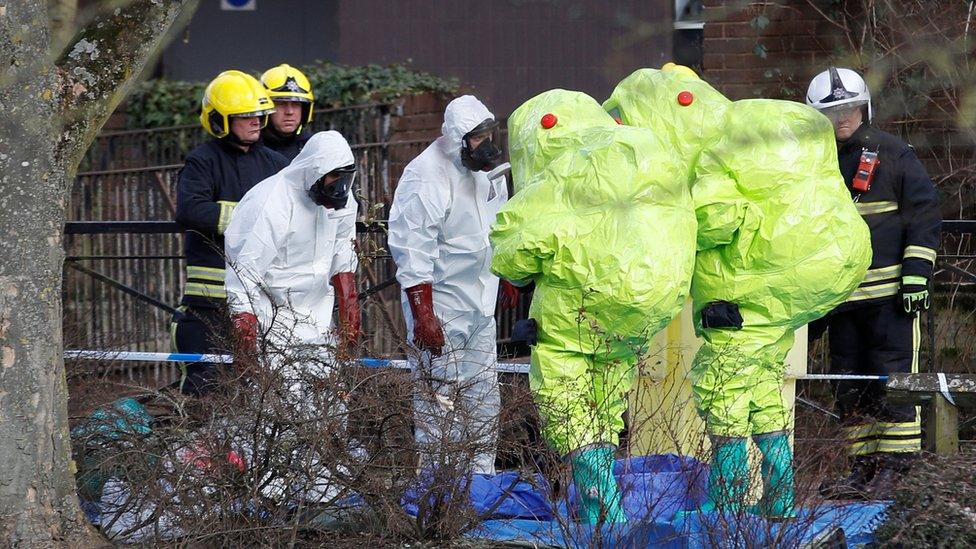
Officials in protective suits examined the area where Mr Skripal and his daughter were found
And it was difficult to know what to say early on, Mrs May said.
"At the early stages you most often don't know - and you shouldn't speculate.
"But it was important in the case of Salisbury because of the action we were then able to take against Russia. Not just the UK, but other countries around the world did so too.
"We waited until we were certain about what had happened, so that when we went to people, we were able to evidence it. So they could have confidence in what we were saying," Mrs May said.
Russia was accused of being responsible for the attacks, with two Russian agents identified through CCTV alleged to be part of the country's military intelligence.
The Kremlin has always denied any responsibility.
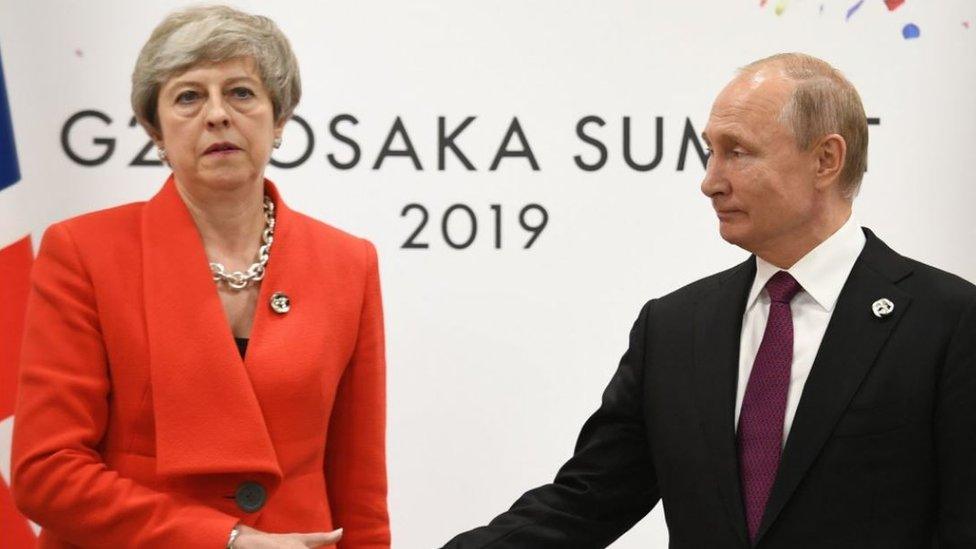
Theresa May met with Putin in Japan in 2019 and said Russia must end its "irresponsible and destabilising activity"
The UK sanctioned Russia for the attack, including with the expulsion of the country's diplomats.
Several other countries supported the UK, with more than 150 diplomats being expelled altogether.
"The fact that so many more [people] could have been affected, I think also hit home to so many people around the world," Mrs May said.
Reflecting on relations following the poisonings, Mrs May said: "I think it showed a United Kingdom that was respected.
"I think the fact that we had put as much evidence as possible out there of what we knew to our allies and to those who we wanted to support us across the world.
"I think those are positive - I think we have learnt from those in other ways."
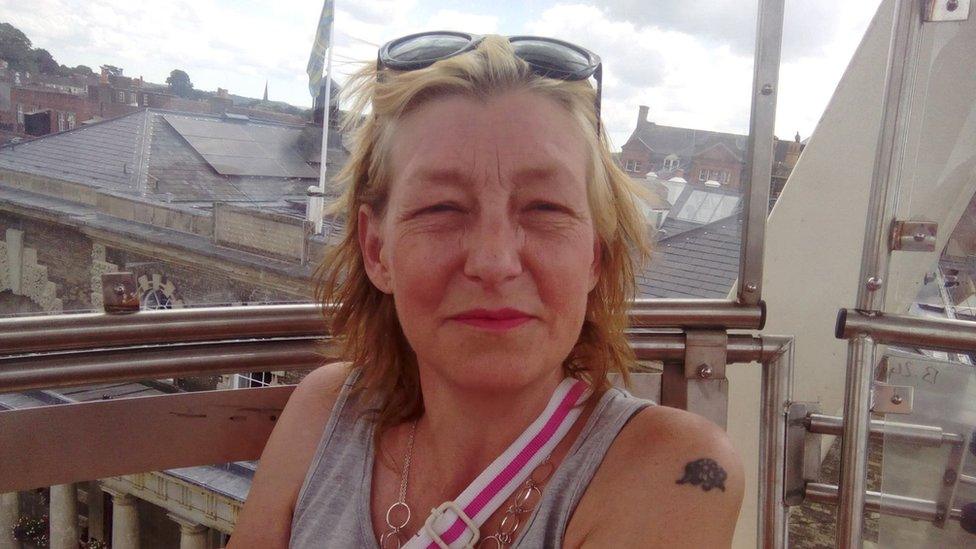
Dawn Sturgess collapsed at a flat in Amesbury on 30 June
A public inquiry into Ms Sturgess' death is yet to start.
"I don't yet know whether I'll be called to give evidence," Mrs May said.
"It will be an important moment when that inquiry takes place," she added.
You can hear the full Salisbury Poisonings story through the My Moment in History podcast.
Mrs May spoke to BBC Radio Wiltshire as her new book has been published: The Abuse of Power: Confronting Injustice in Public Life, ahead of her appearance at the Cheltenham Literature Festival.

Follow BBC West on Facebook, external, Twitter, external and Instagram, external. Send your story ideas to: bristol@bbc.co.uk, external
- Published4 March 2023
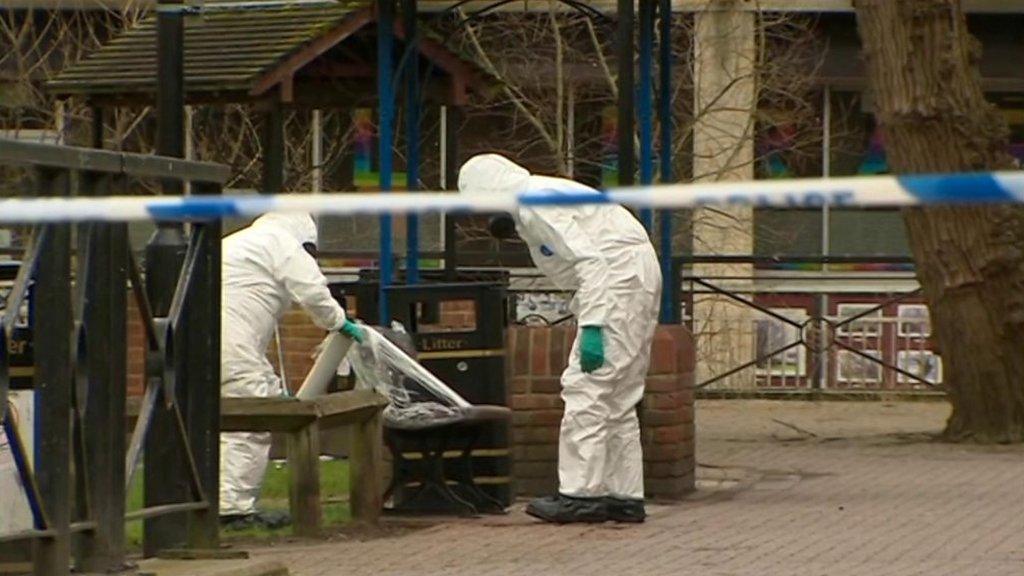
- Published2 September 2020
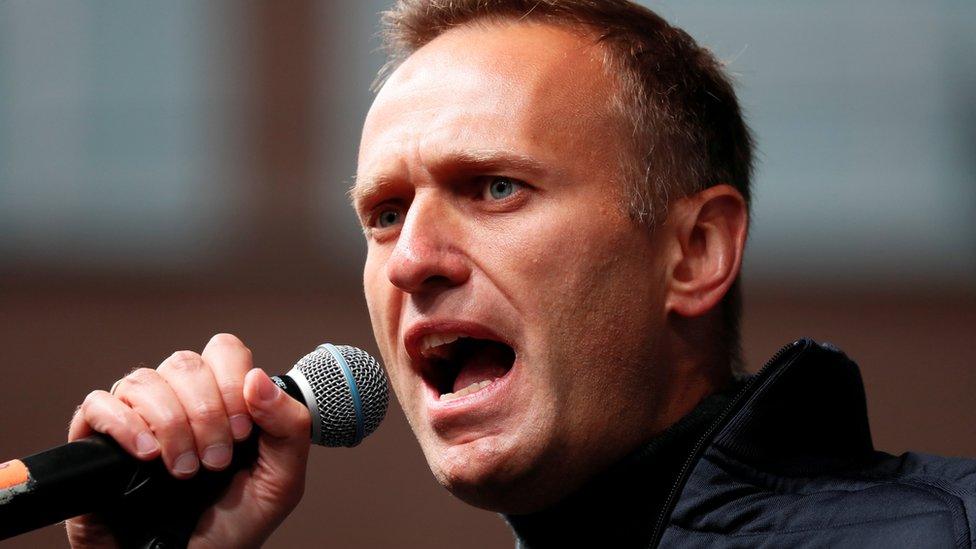
- Published15 March 2018
